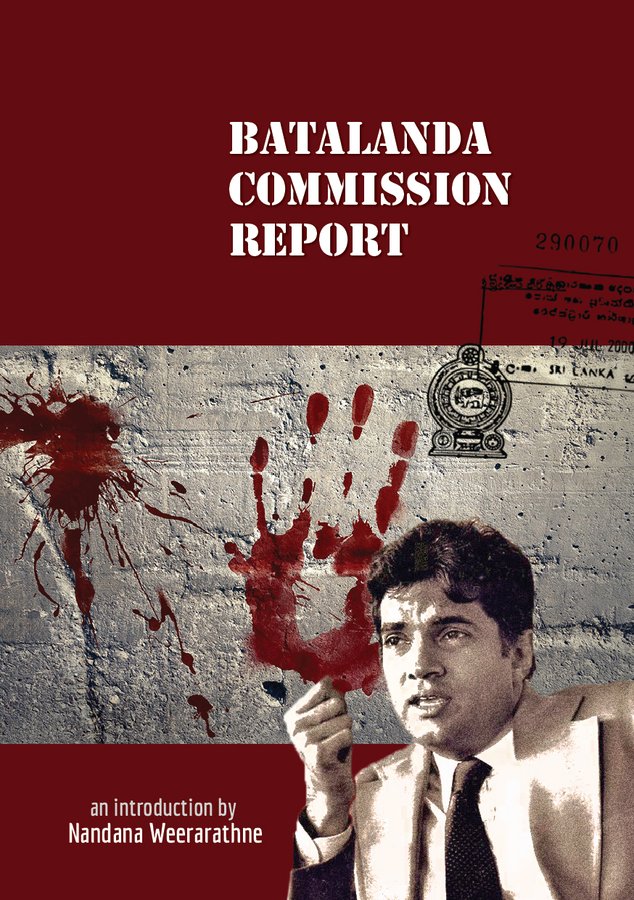
Batalanda Commission Report – Book English
From an introduction written by Nandana Weerarathne in March 2023
During the 1988/89 era, government forces and police were running torture camps. Also, there were private abattoirs run by the ruling United National Party leaders in their respective districts. In 1989, a teacher, who friend of ours was working in a school in Bibile. Minister Dharmadasa Banda, who was the UNP leader in Monaragala at that time, learned about a torture camp that was run in Bibile – Medagama. We also saw the bodies of youths who had been killed in this torture chamber of Bibila. Why were we young people of that era particularly interested in the torture chambers that were only in one district (Gampaha) in a country that had many torture
centers? You can understand it in the way the legacy of traditional political families in Sri Lanka has passed. This is a country where party leadership and political positions are inherited from father to son, mother to daughter, and uncle to son-in-law. Accordingly, we had no doubt that Ranil Wickremesinghe will be the leader of the UNP in the near future.
In 1977, Ranil was given the post of Deputy Foreign Minister by Prime Minister J.R. Jayewardene, as soon as he came to Parliament from Biyagama Constituency as a new Member of
Parliament. J.R. Jayewardene immediately after assuming the post of Executive President in 1978
gave the title of Minister of ‘Youth Affairs and Employment’ to his son-in-law Ranil. In 1988, when
Ranasinghe Premadasa became President, Ranil was given the title of Minister of Industry and
Science. After the assassination of President Premadasa in 1993, Ranil became the Prime Minister.
This political rise of the political heir of the Wickremesinghe – Wijewardena – Jayawardena family
did not surprise us. When he held the position of Employment Minister, he followed a strict policy
of not giving government jobs to anyone who did not have a letter from the UNP councilor of
the province. When he was the education minister, he even ordered a graduate who applied for a
graduate teacher appointment to bring a letter from the provincial, UNP councilor. There was only
one measure to prevent such an evil politician from becoming the future leader of the country. It
is to inform the people of the country about his criminal history. To add those crimes to history.
But we had to wait so many years for that. The village name ‘Batalanda’ was added to the
political history of modern Sri Lanka due to the use of the government-owned housing scheme
in this area as the headquarters of the crimes committed in one era. During the 1988/89 revolt
season, the crimes committed in this housing scheme, which was known as the ‘Batalanda Torture
chambers’, ended in late 1990. However, it remained a no-go area for outsiders until the end
of 1994. An investigation team attached to the Ravaya newspaper visited Batalanda in January
1995. The story of the ‘Batalanda Torture chambers’ which was run in the housing complex where
the then opposition leader and the current President of the country, Ranil Wickremasinghe lived,
attracted national and international attention when the newspaper ‘Ravaya’ published the report of
its investigators. The basic foundation for it was formed in this way.